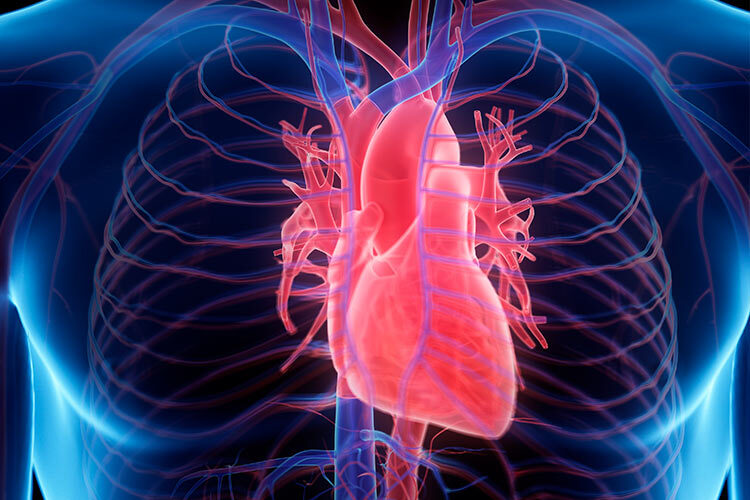Although heartbeats are the symphony of life, a hidden and threatening reality sometimes lies behind their constant rhythm: heart failure. What is it, what causes it, and how can we prevent it? We explain it to you here.
First, the heart weighs between 200 and 425 grams and is approximately the same size as a fist. It beats around a thousand times per day and pumps 5 liters of blood each minute. It is a vital organ that works 24 hours a day, 365 days a year.
In addition to genetics, there are other factors that can put the health of this tirelessly beating engine at risk. Among them are poor diet, smoking, alcohol consumption, lack of physical activity, obesity, not having chronic illnesses such as diabetes under control, and finally, age – our heart also faces challenges as we grow older.
The last point is crucially important because it is predicted that more than 70% of the world’s population will be older adults by 2043:
“This implies that our heart will have to work for many more years. A person who has lived longer has been exposed for more time to pollution, stress, work, and a poor diet. Somehow, all this comes together and cardiovascular diseases begin to appear,” says Gerardo García, a researcher in the translational area at TecSalud.
What Is Heart Failure?
Heart failure results from damage to the heart and can be caused by various diseases, such as hypertension, diabetes, infections, and metabolic problems, each of which significantly reduce heart function. Heart attacks are also an important cause.
“They are the result of diseases that are acquired with age, often caused by genetic factors and habits. When a heart attack occurs, the arteries, which are the tubes that bring blood to the heart, clog up through a process called atherosclerosis. This is the buildup of fat and cholesterol that results in obstruction of the blood supply. Modern habits are the main cause of this vascular problem,” explains Guillermo Torre, Rector of TecSalud.
Heart failure can be divided into four stages:
- There are no perceived limitations: physical activities are carried out without feeling tired or suffering shortness of breath.
- Mild functional limitation: routine physical activities cause shortness of breath.
- Moderate functional limitation: some common physical activities such as bathing or dressing cause shortness of breath.
- Severe functional limitation: symptoms occur even when at rest and you are unable to perform physical activities.
How Can You Prevent Heart Failure?
In order to reduce the risk of cardiovascular disease, it is crucial to adopt a healthy lifestyle which includes regular exercise, a balanced diet, restful sleep, and strong social relationships, as all these factors also influence heart health.
Vicente Jiménez, clinical leader of the TecSalud Cardiogenic Shock team, recommends doing the following in an emergency:
- If someone collapses, the first thing to do is detect whether they have a pulse; if they react, they should be stimulated verbally and moved by shaking their chest and head.
- If there is no pulse, you should start performing CPR.
What Are the Symptoms of Heart Failure?
It is essential to pay attention to any symptoms that may indicate a heart problem such as a tight feeling in the chest, fatigue, difficulty breathing, chest pain, swelling in the feet, irregular heartbeats, or fainting, and seek specialized medical attention immediately.
In a world where stress, poor diet, and a sedentary lifestyle threaten our heart health, listening to our heartbeat and acting accordingly can mean the difference between life and death.
















